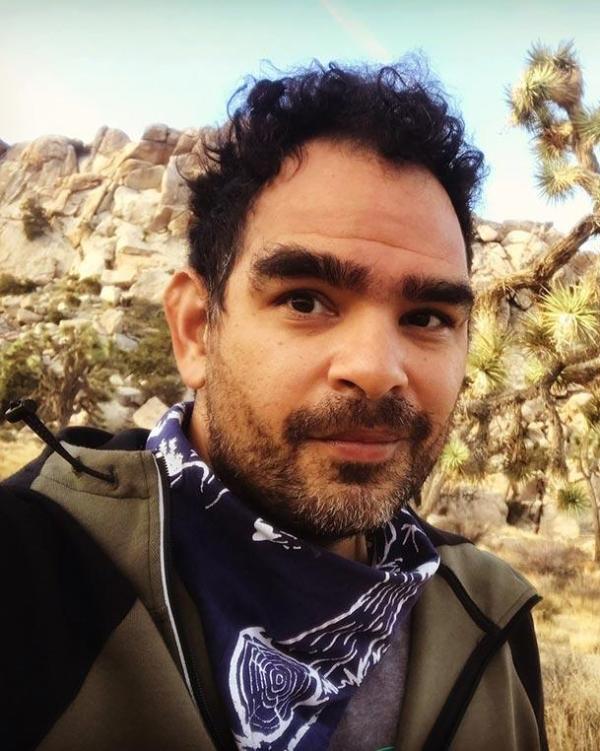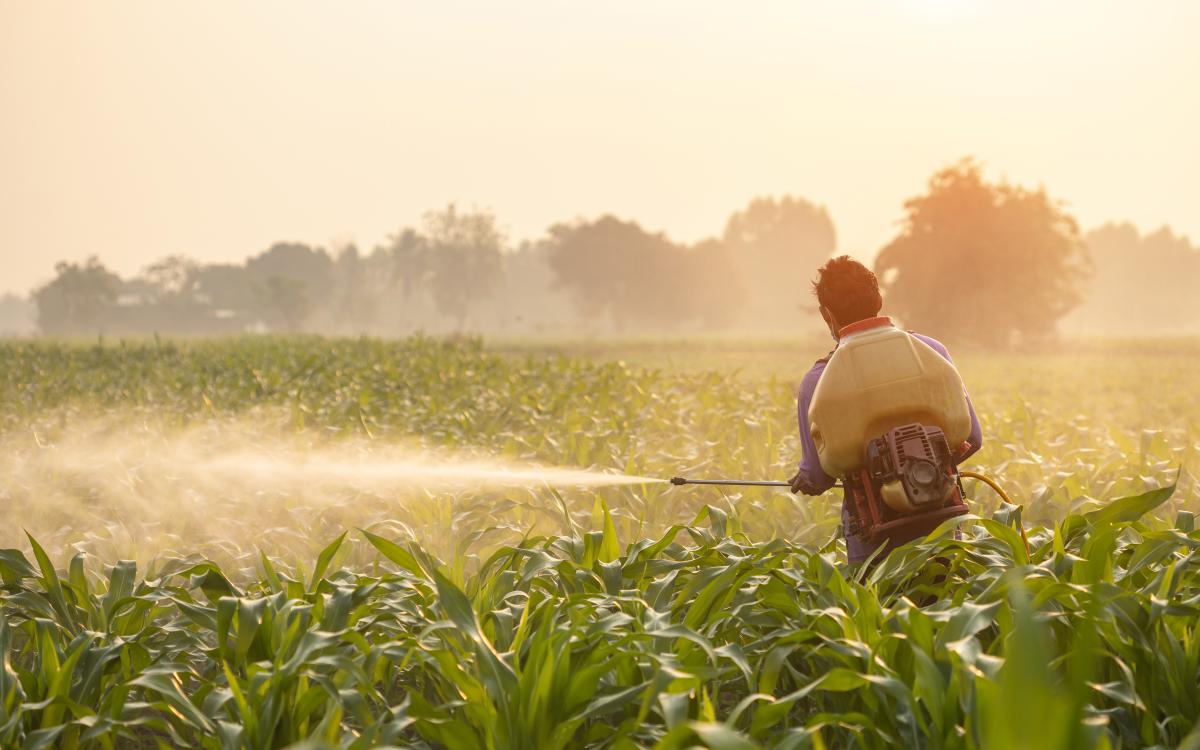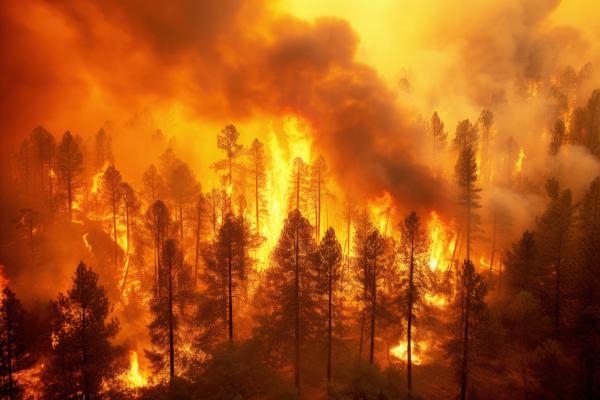Postdoc Profile: Where the Climate Meets Community Health
Dr. Richard Remigio Studies the Health Repercussions of Changing Environmental Conditions

Dr. Richard Remigio
Summer 2023 started off on an ominous note. On June 7th, New Yorkers woke up to a deep orange skyline over Manhattan and the Statue of Liberty, resembling a scene from a dystopian novel. Air quality indices there reached ‘code maroon,’ warning that being outdoors was dangerous even for healthy people. Americans and Europeans would subsequently endure some of the highest summer temperatures on record, and in August, wildfires devastated the Hawaiian island of Maui.
These and many other recent events have made it clear how much climate change already affects people’s lives. One of the people trying to combat those consequences is Richard Remigio, Ph.D., a postdoctoral fellow at the Occupational and Environmental Epidemiology Branch at the National Cancer Institute (NCI).
"There is a great deal of information being collected on the short-term effects of extreme weather on human health,” Dr. Remigio says. “However, there is little understanding of its potential long-term impact. Understanding these health effects is critical in informing life-saving interventions and adaptation strategies within and across communities."
Dr. Remigio has close to ten years of experience working at the interface of climate and human health, starting when he was an environmental engineer at the U.S. Environmental Protection Agency (EPA). At the EPA, he was involved in water quality studies that assessed the health effects of exposure to mercury and pathogens like bacteria and viruses found in discharged wastewater. His interest in environmental epidemiology piqued by his stint at the EPA, he decided to return to school and pursue a Ph.D. in environmental health sciences. His graduate research focused on how outdoor temperature and air pollution influence the health of patients with severely impaired kidney function.
“I was always intrigued about the translation of scientific research into policy-making and regulatory action at the EPA,” he explains. “Effective scientific communication from trained researchers can make the difference in shaping meaningful and timely actions.”
Now a postdoctoral fellow at NIH, Dr. Remigio works with IRP senior investigator Laura Beane-Freeman, Ph.D., in examining cancer risk associated with exposure to pesticides among participants in the Agricultural Health Study (AHS). Since the mid-1990s, the AHS has collected data from farmers and their spouses about their health and exposures to various chemicals used in agriculture. Currently, Dr. Remigio is working with Dr. Beane-Freeman to evaluate the potential cancer risks associated with exposure to atrazine, a common agricultural herbicide, among people who apply pesticides on farms and their spouses.
"By using self-reported data, I applied an algorithm that incorporates the frequency and duration of pesticide usage weighted by factors that may influence individual exposure, such as the use of personal protective equipment and pesticide application methods, to estimate the risk of developing cancer associated with lifetime exposure,” Dr. Remigio explains.

Epidemiologists like Dr. Remigio are trying to figure out how various pesticides may affect the risk of developing diseases like cancer among those who spray them on crops.
Dr. Remigio is also continuing his work in studying environmental exposures linked to climate change, such as heavy rainfall and drought, using AHS data. He has cultivated collaborations with climate and health researchers outside of NIH and identified environmental data sources to explore this linkage. In other work, he has recently started characterizing how wildfires affect rates of, and deaths from, cancer in the U.S., a collaboration with IRP investigator Rena Jones, Ph.D. Dr. Remigio received a NCI Director's Career Development Innovation Award and a DCEG Intramural Research Award to fund his efforts, recognition that has bolstered his ability to pursue answers about how climate change is affecting human health now and how it will influence health it in the future.

Climate driven catastrophes like wildfires and droughts are increasingly becoming a major influence on both of Americans’ health and Dr. Remigio’s research.
Dr. Remigio attributes his successful trajectory in climate and health research, in part, to his undergraduate days at the University of California at Irvine, where he greatly benefitted from the National Science Foundation-funded California Alliance for Minority Participation (CAMP), which is devoted to increasing historically underrepresented students in STEM disciplines.
“As a Latino and first-generation college graduate, I know first-hand the importance of representation in my discipline,” he says. “The support and mentorship from programs like CAMP opened many possibilities for me. The prospects of graduate school became a reality.”
What’s more, Dr. Remigio recognizes that no researcher is an island. With climate change already affecting the lives of people around the world, he makes a deliberate effort to communicate about his work with non-scientists so they can “ask important questions and make sound decisions in their life based on that information.” He also understands the importance of teamwork in his rapidly evolving field.
"I think the work we're doing is incredibly important for the planet, and we need all the help we can gather from clinical scientists, epidemiologists, climatologists — we need everyone to work together to understand these issues and contribute big ideas for meaningful solutions and interventions,” he says.
As journalist Elizabeth Kolbert writes in her 2014 book The Sixth Extinction, "We are the architects of our own destruction, but we can also be the architects of our own salvation." Dr. Remigio is similarly hopeful that we can make changes that lead to a better world.
“In our line of work, most times we generate a lot of doom and gloom,” he says, “but our research could serve and create something uplifting, and I want to be a part of the solution.”
Subscribe to our weekly newsletter to stay up-to-date on the latest breakthroughs in the NIH Intramural Research Program.
Related Blog Posts
This page was last updated on Thursday, January 4, 2024
